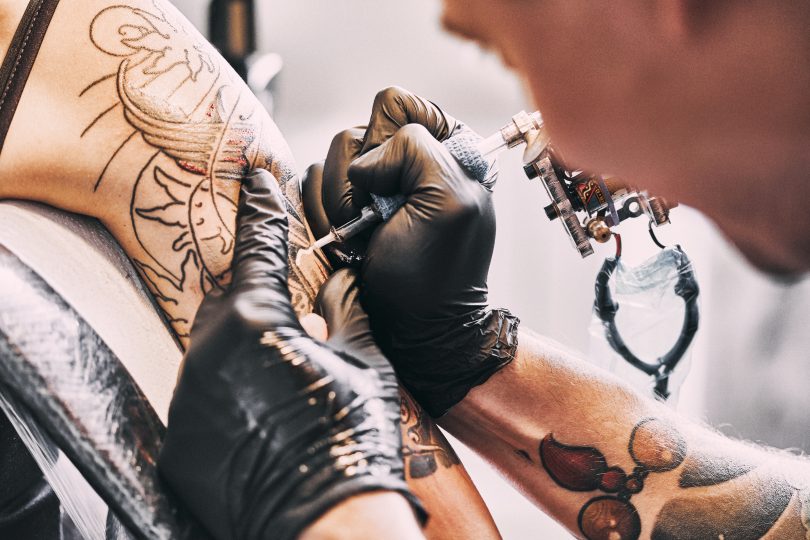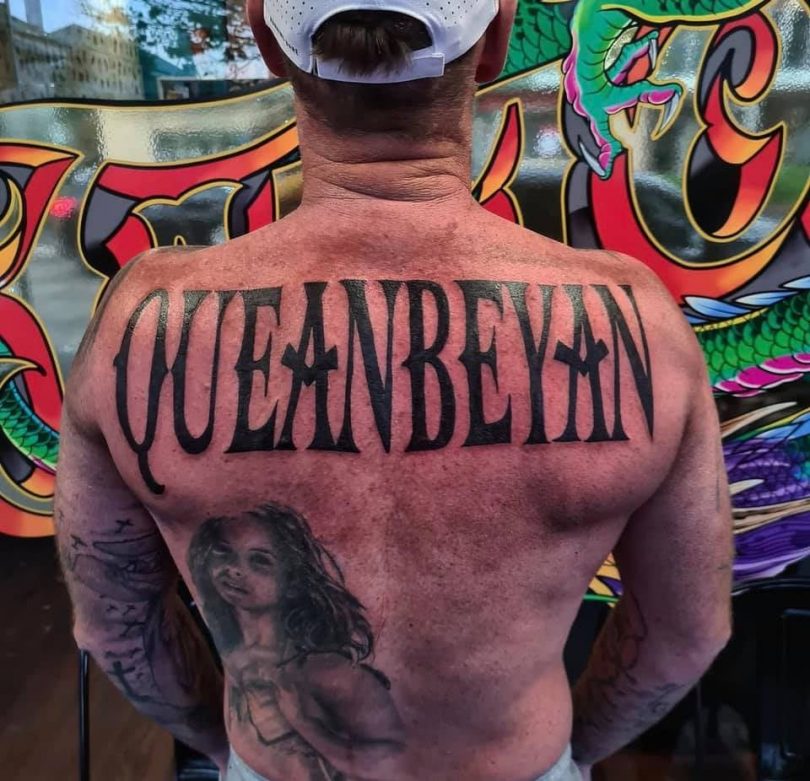
Does aversion to tattoos reflect a classist disdain for any action that falls outside the norm? Photo: File.
I was at dinner recently and a few younger people at the table were discussing tattoos and when/where they wanted to get their first one.
A young man bemoaned that he didn’t really know what he wanted to get and was worried he’d regret it. I leaned across to point out that once you have a few tattoos, you don’t really worry too much about what they look like. They become part of your body, and you grow fond of them the way you might feel affection for other individual characteristics of your appearance, like a crooked tooth or birthmark. They signify a time or point in your life.
As we spoke, I realised that older generations who had a very different view were represented at the table.
When I got my first tatt in my 20s, I remember it being met with dismay by some. In fact, I deliberately hid it from my own parents for years because I knew they hated tattoos and would have strong opinions about it (until I forgot one night and it was revealed in all its glory).
It occurred to me that the cultural attitude towards tattoos has shifted a great deal within younger generations, but has that attitudinal shift carried across to reduce the stigma associated with them more broadly, especially at work?
A friend with a few visible tatts told me recently that she was once in a meeting where a senior staff member said any tattoo was a sign of gang affiliation. This was while discussing uniform policy, but given my mate was sitting there with three tattoos that had very little to do with gangs (unless Harry Potter fandom can be considered one), it was perplexing.
Another friend had a clause in her contract to not show her tattoos at work, especially when meeting clients.

Scott Jeffery isn’t backward about his love of Queanbeyan. Photo: Deep Image Tattooing.
If I think about these policies logically, I don’t understand what is confronting about someone having tattoos, how it would negatively impact meeting a client or reflect poorly on a company. It’s an attitude that feels hopelessly old fashioned now, the way long hair was seen as aberrant once upon a time, and facial hair on men was frowned upon.
It’s an attitude that ultimately connects with generally classist attitudes to appearance, which find signs of difference – things which are often linked to working-class or less wealthy cohorts as well – to be distasteful. And it reinforces the idea that the most ‘appropriate’ appearance is that of a well-dressed, conservative looking man/woman as the status quo, and any individuality beyond that is not ideal.
The fact is that almost everyone I know who is in my age group or younger has one or more tattoos. Most of these are visible, and some of my friends (who hold very senior roles in their professions) have full sleeves, neck tattoos and many piercings. It’s not the signal of antisocial tendencies that some with a more traditional mindset might think.
Instead, it’s a way that many of us celebrate our identities, passions and freedom of expression using our bodies. It’s a form of art, and a sign of agency and those of us with tattoos probably spend less time thinking about them than those in society who find them distasteful.
So does that mean that workplaces have a position against tattoos being visible on their staff need to get with the times? Or are there some settings where they just aren’t appropriate? And if you think the latter, what impact does an etching on someone else’s skin really have on you?





















